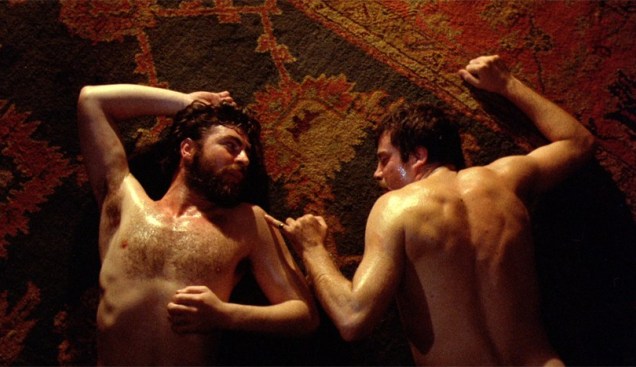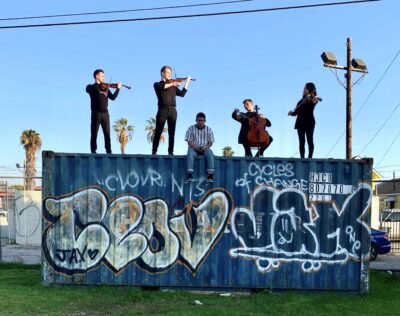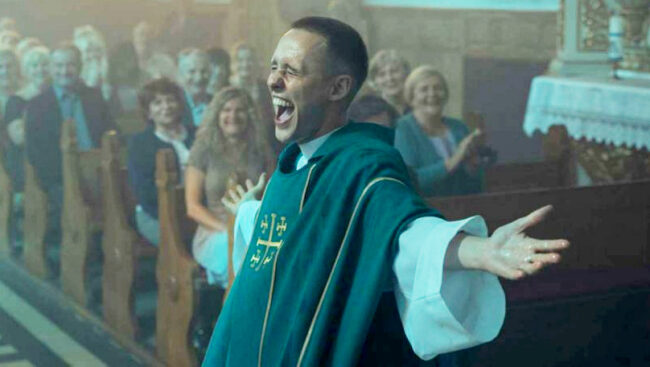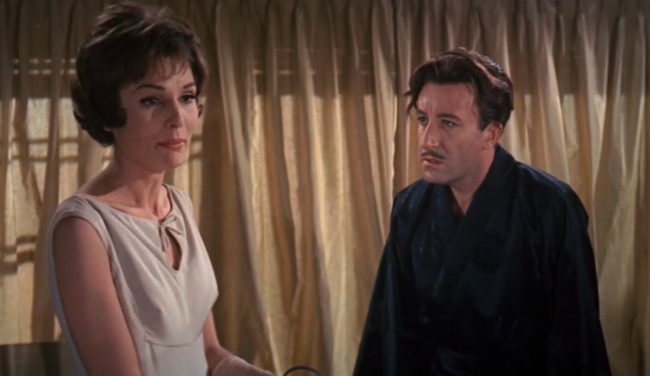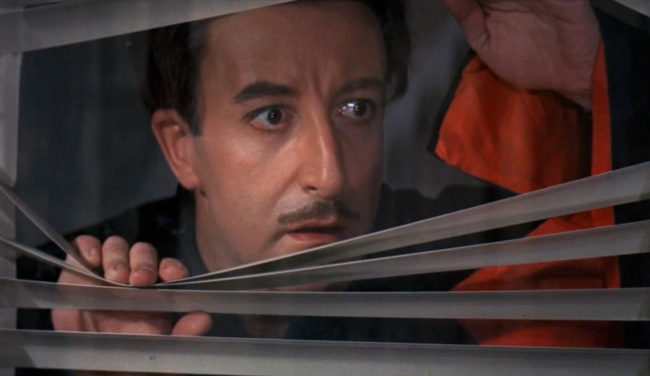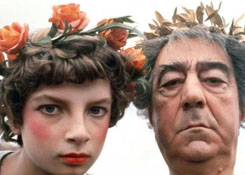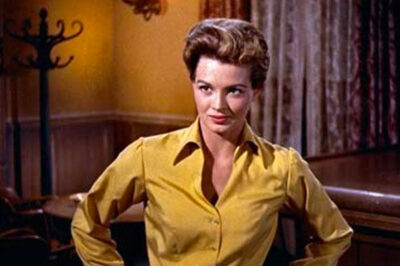 Laemmle Theatres and the Anniversary Classics Series present one of the best-loved westerns of all time, Howard Hawks’ 1959 action romp, RIO BRAVO. Actress Angie Dickinson will participate in a pre-show Q&A on February 25th at 7PM.
Laemmle Theatres and the Anniversary Classics Series present one of the best-loved westerns of all time, Howard Hawks’ 1959 action romp, RIO BRAVO. Actress Angie Dickinson will participate in a pre-show Q&A on February 25th at 7PM.
As many modern critics have observed, the film was a box office hit in its time but wasn’t really taken seriously. Leonard Maltin wrote, “Quintessential Hawks Western, patronized by reviewers at the time of its release, is now regarded as an American classic.”
John Wayne, the star of several Hawks films, led the cast, but the director put together an eclectic group of players. In addition to veterans Walter Brennan and Ward Bond, the director cast singer and comedian Dean Martin, young TV personality and pop singer Ricky Nelson, along with Angie Dickinson in a vivid, star-making turn.
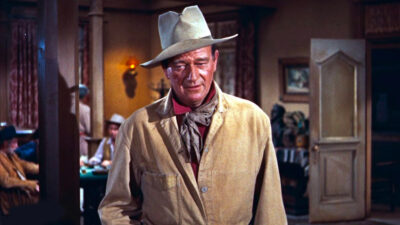 The story by B.H. McCampbell (Hawks’s eldest daughter Barbara) presents a fairly simple tale. Wayne plays a sheriff in a small Texas town who is holding a murderer (Claude Akins) in the town jail until the marshal can move him to a nearby penitentiary. But the killer’s brother, a wealthy rancher with a large gang of confederates, intends to break the prisoner out of jail. Wayne’s character is vastly outnumbered, but he turns to an unlikely posse—a drunken deputy (Martin), a helpless cripple (Brennan), and a young greenhorn (Nelson), along with a visiting lady gambler (Dickinson).
The story by B.H. McCampbell (Hawks’s eldest daughter Barbara) presents a fairly simple tale. Wayne plays a sheriff in a small Texas town who is holding a murderer (Claude Akins) in the town jail until the marshal can move him to a nearby penitentiary. But the killer’s brother, a wealthy rancher with a large gang of confederates, intends to break the prisoner out of jail. Wayne’s character is vastly outnumbered, but he turns to an unlikely posse—a drunken deputy (Martin), a helpless cripple (Brennan), and a young greenhorn (Nelson), along with a visiting lady gambler (Dickinson).
The story is fleshed out by two superb screenwriters who worked frequently with Hawks—Jules Furthman (Only Angels Have Wings, To Have and Have Not, The Big Sleep) and Leigh Brackett (The Big Sleep, Hatari!, El Dorado). Brackett was one of the pioneering female writers of an earlier era, and she went on to work on such classics as The Long Goodbye and The Empire Strikes Back.
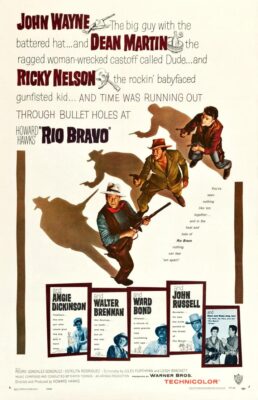 Brackett surely contributed to the vitality of Angie Dickinson’s character, Feathers, a tough, sassy woman who more than holds her own in confrontations with Wayne. The Los Angeles Times took special note of Dickinson, saying, “starmaker Howard Hawks has worked some of the same kind of magic as he did with Lauren Bacall in To Have and Have Not.” Indeed, some of the memorable repartee between Bogart and Bacall in that film was recycled effectively in Rio Bravo.
Brackett surely contributed to the vitality of Angie Dickinson’s character, Feathers, a tough, sassy woman who more than holds her own in confrontations with Wayne. The Los Angeles Times took special note of Dickinson, saying, “starmaker Howard Hawks has worked some of the same kind of magic as he did with Lauren Bacall in To Have and Have Not.” Indeed, some of the memorable repartee between Bogart and Bacall in that film was recycled effectively in Rio Bravo.
In addition to sharp dialogue and fine performances, the film incorporates several suspenseful and exciting action sequences, masterfully orchestrated by Hawks, cinematographer Russell Harlan (Oscar-nominated for both To Kill a Mockingbird and Hawks’ Hatari! in 1962), and aided by the rousing score of Dimitri Tiomkin (High Noon, The High and the Mighty, Giant).
At the time of its release in 1959, Variety called Rio Bravo “a big, brawling western with enough action and marquee voltage to ensure hefty reception at the box office.” It did strong business and reviews in later years were even more glowing. Writing in The New York Times in 2012, Dave Kehr called it “one of the most purely pleasurable films ever made.” Roger Ebert raved, “To watch Rio Bravo is to see a master craftsman at work. The film is seamless. There is not a shot that is wrong.” The film was added to the National Film Registry of the Library of Congress in 2014.
When we launched our Anniversary Classics series in 2013, Angie Dickinson was our very first guest, appearing at a 50th anniversary screening of Captain Newman, M.D. She joined us again for a 50th anniversary screening of John Boorman’s neo-noir classic, Point Blank, in 2017. Her other films include Ocean’s Eleven, Don Siegel’s The Killers, The Chase (opposite Marlon Brando), Big Bad Mama, and Brian De Palma’s Dressed to Kill. She also made history as the first female star of a TV action series, Police Woman, in the 1970s.
RIO BRAVO screens Tuesday, February 25, at 7PM at the Royal Theater in West L.A.
141 minutes * USA * 1959 * DCP

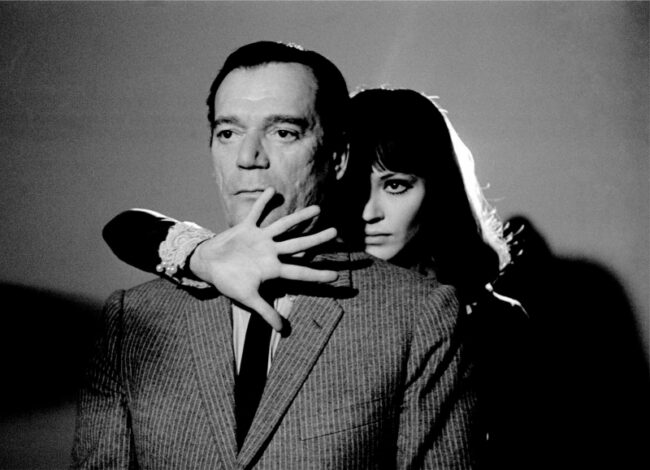
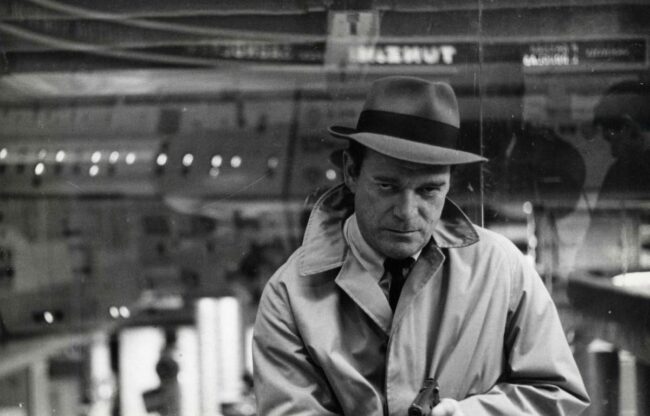
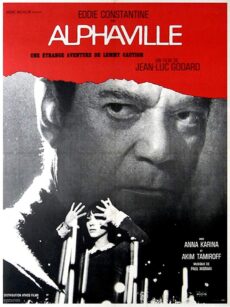 The film won the top prize, the Golden Bear, at the Berlin Film Festival. Reviews were mixed at the time, with some critics bewildered and others praising the film’s style and originality. Over the years it has been recognized as a prophetic work in its protest of the growing dehumanization of modern life. As the Boston Globe’s Ty Burr wrote, “Alphaville moves closer to relevance with every passing year.” The New Yorker’s Richard Brody called it “one of the great cinematic works of romanticism.” Time Out’s Keith Uhlich added, “Karina proves to be the beating heart of the movie.”
The film won the top prize, the Golden Bear, at the Berlin Film Festival. Reviews were mixed at the time, with some critics bewildered and others praising the film’s style and originality. Over the years it has been recognized as a prophetic work in its protest of the growing dehumanization of modern life. As the Boston Globe’s Ty Burr wrote, “Alphaville moves closer to relevance with every passing year.” The New Yorker’s Richard Brody called it “one of the great cinematic works of romanticism.” Time Out’s Keith Uhlich added, “Karina proves to be the beating heart of the movie.”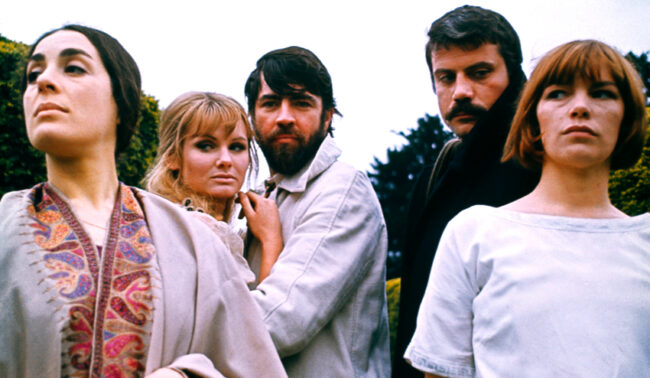
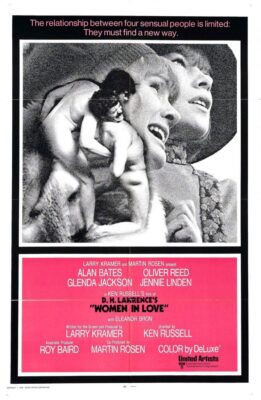 Director Ken Russell, best known for his “flamboyant and controversial style,” in such subsequent films as The Music Lovers, The Devils, The Who’s Tommy, Lisztomania, and Altered States, is notably more restrained in WOMEN IN LOVE. He did, however, connect with the sexual revolution and bohemian politics of the late 1960s, when the film was made, in notorious scenes such as the nude wrestling match between Reed and Bates, the first display of full-frontal male nudity in a mainstream movie. WOMEN IN LOVE represents his sole Oscar nod for directing.
Director Ken Russell, best known for his “flamboyant and controversial style,” in such subsequent films as The Music Lovers, The Devils, The Who’s Tommy, Lisztomania, and Altered States, is notably more restrained in WOMEN IN LOVE. He did, however, connect with the sexual revolution and bohemian politics of the late 1960s, when the film was made, in notorious scenes such as the nude wrestling match between Reed and Bates, the first display of full-frontal male nudity in a mainstream movie. WOMEN IN LOVE represents his sole Oscar nod for directing.